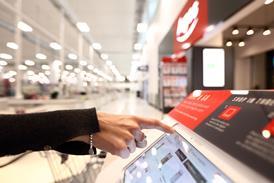Retail’s new lipstick effect: what products will fly off the shelves post-Covid?

During past recessions, consumers have snapped up small luxuries, such as lipstick, to make themselves feel better. But with face masks making a lipstick uptick unlikely, which treats will shoppers indulge in now?
When times are tough consumers don’t simply stop shopping, but instead, trade down from big-ticket items to small indulgences to cheer themselves up. We’ve all been there, feeling a bit gloomy and hoping some retail therapy will raise our spirits, whether that be a posh box of chocolates or a new outfit.
During tough economic climes, consumers traditionally snap up little luxuries – such as lipstick – to give them an instant pick-me-up, otherwise known as the lipstick effect.
However, with mandatory face masks very much part of our new normal, shoppers will be turning to other categories to give them a boost during any post-Covid recession.
Already have an account? Sign in here



















